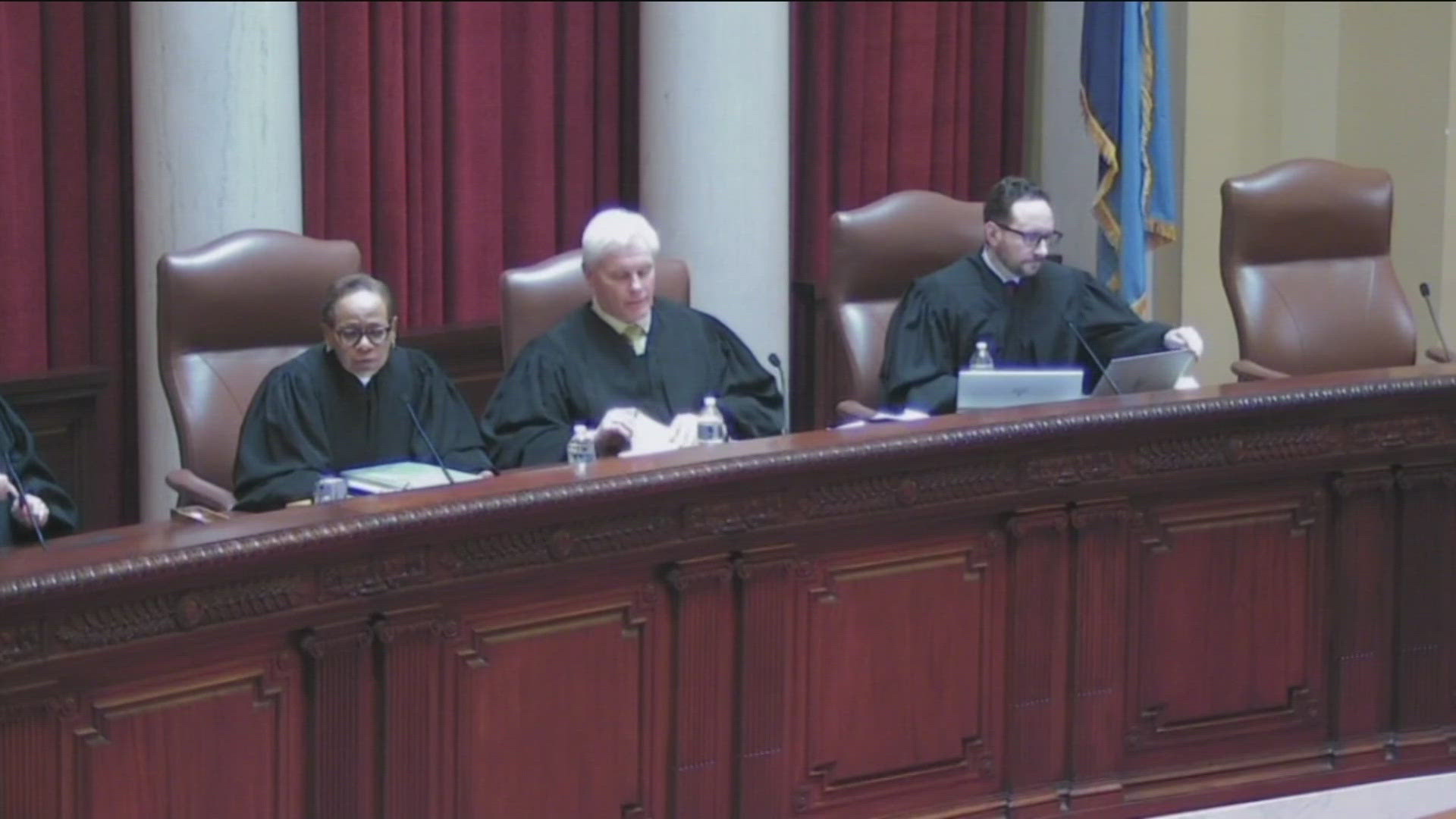SAINT PAUL, Minn. — The conversation inside the Minnesota State Capitol on Tuesday was focused on sports, but a different type of competition was taking place inside the court chambers. Two opposing sides are vying for the Minnesota Supreme Court to rule in their favor in the case of Cooper v. USA Powerlifting.
Transgender woman and athlete JayCee Cooper filed discrimination charges with the Minnesota Department of Human Rights in 2019 after USA Powerlifting banned her from participating in women's competitions. In 2021, Cooper filed a lawsuit against USA Powerlifting.
The lawsuit claims USA Powerlifting's ban on transgender women is "an outlier among international, national and local sports organizations," pointing to the International Olympic Committee's framework regarding inclusion of athletes and their gender identities.
The case made its way through the state's courts over several years before landing in the hands of the Minnesota Supreme Court. Oral arguments took place Tuesday morning, in which Cooper was represented by Gender Justice attorney Christy Hall and USA Powerlifting was represented by attorney Ansis Viksnins.
Gender Justice is a legal nonprofit organization based in St. Paul. In a press conference Tuesday morning, the organization's legal director Jess Braverman said USA Powerlifting is violating Cooper's rights under the Minnesota Human Rights Act.
"Every Minnesotan deserves the freedom to pursue their dreams without fear of exclusion or discrimination," Braverman said. "Ms. Cooper was denied that right, solely because she is transgender."
Viksnins, the attorney representing USA Powerlifting, said Cooper was excluded from women's competitions due to her biological sex, not gender identity. "It's not discrimination based on gender identity. That's the problem for Ms. Cooper's case: that the differentiation here was because of her biological sex, not for gender identity."
In 2021, USA Powerlifting launched its MX category, providing a separate division for athletes of all gender identities. "It doesn't solve the problem of transgender women being barred from women's competitions, which is the issue here," Braverman said.
There is no clear timeline as to when the Supreme Court will makes its decision on the case.

